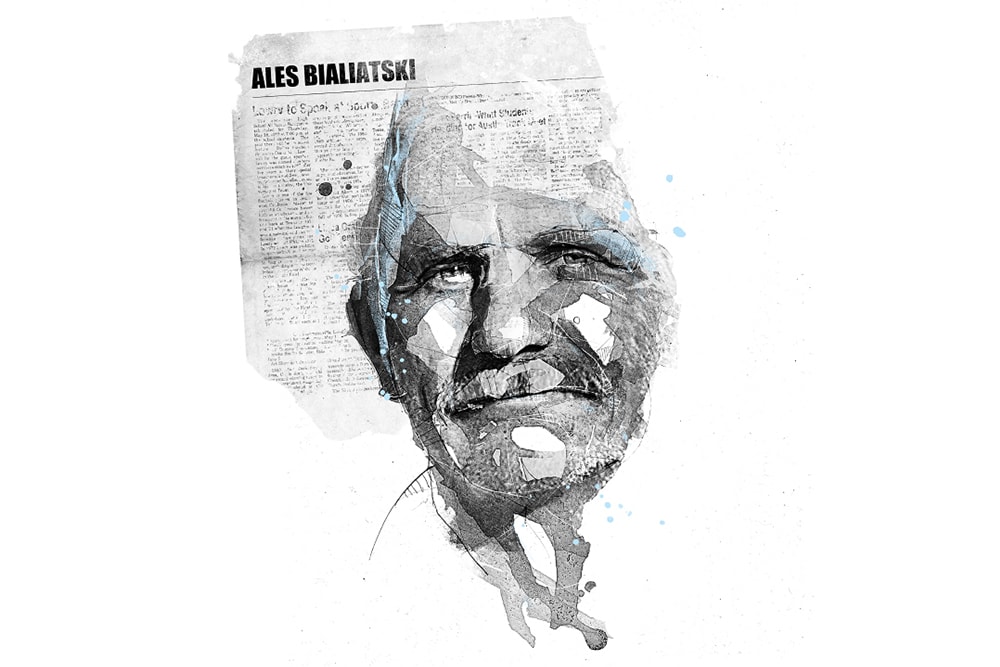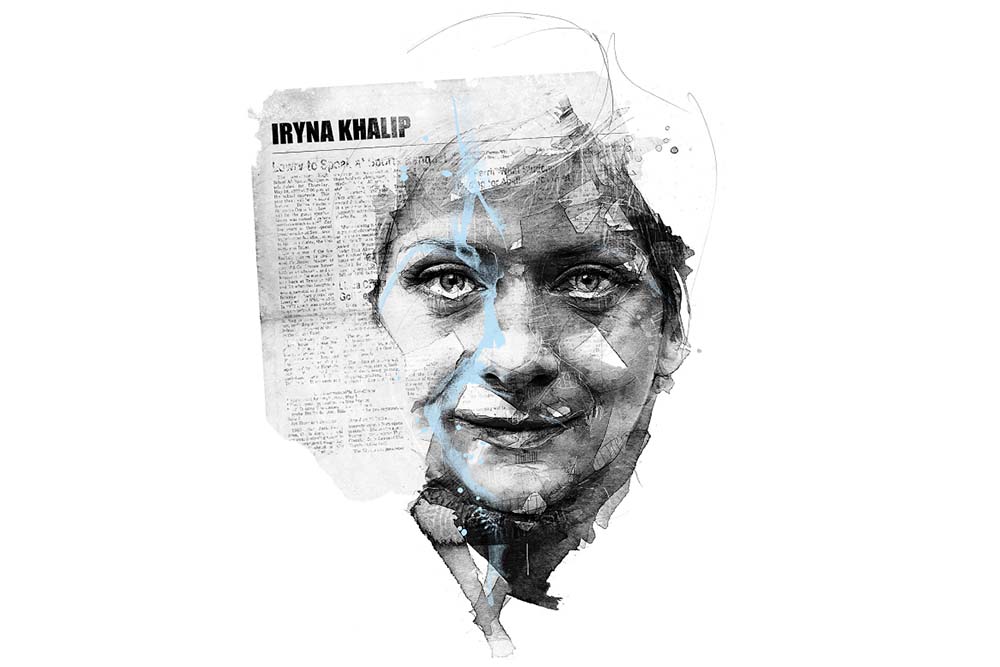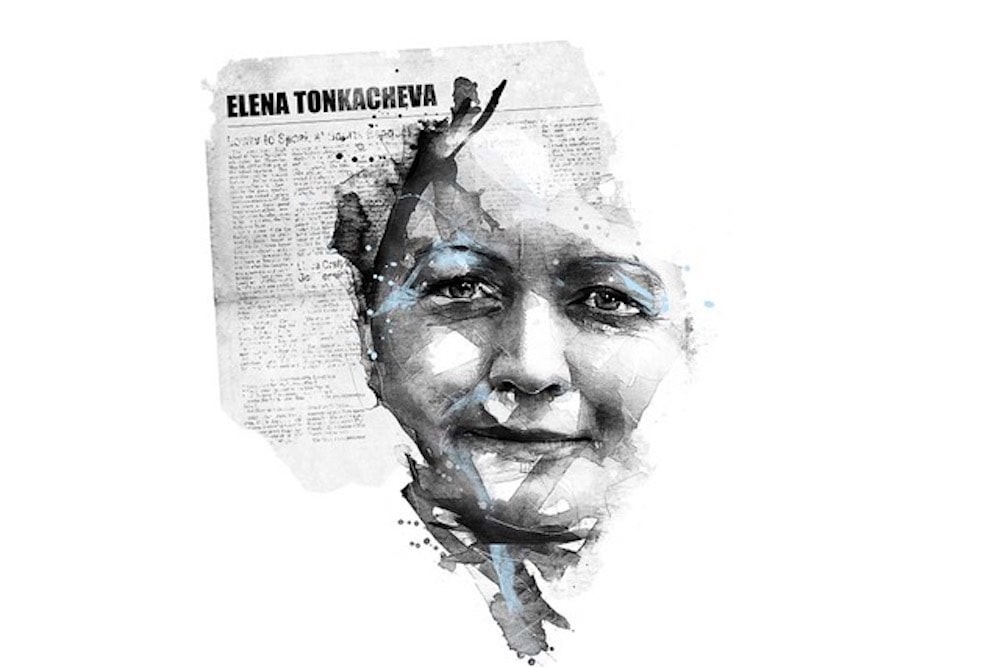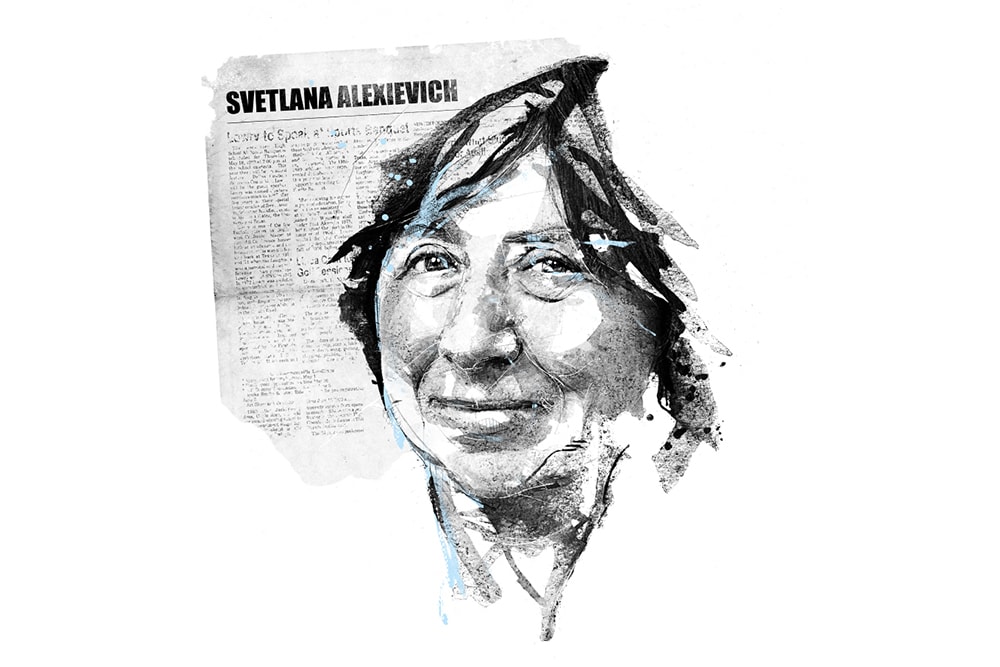The recipient of the Nobel Peace Prize in 2022 and of a lengthy prison sentence in 2023, Ales Bialiatski has been defending human rights in "Europe's last dictatorship" for three decades.
You can't compare Lukashenka to dictators in the middle of the 20th century. He is not a Stalin; I would call him the degenerate grandson of Stalin.
If you measure a human rights defender by the number of awards they receive, Ales Bialiatski ranks very highly. His vital human rights work in Belarus has seen him presented with the Nobel Peace Prize, the Homo Homini Award, the Andrei Sakharov Freedom Award, the Per Anger Prize, the Lech Walesa Award and the Václav Havel Human Rights Award. It also saw him imprisoned in 2011 and 2021.
As well as being a human rights advocate, Bialiatski is a writer and a political activist. He first became politically active in the 1980s and was a founding member of the Belarusian Popular Front, a political party and cultural movement that advocated for democracy after the collapse of the Soviet Union. But Bialiatski is best known for the Viasna Human Rights Centre, a Belarusian NGO that he founded in 1996 to provide support to Belarus’s political prisoners.
Belarus functions in much the same way as the old Soviet Union used to; it controls press, political and religious activity, and imprisons and tortures dissidents. It has been repeatedly condemned for its human rights abuses by the European Union, barred from the Council of Europe and described by the UN Special Rapporteur on the situation of human rights in Belarus as having a political system “incompatible with the concept of human rights.” Elections in Belarus do not meet international standards and the president, Alyaksandr Lukashenka (in post since 1994), is regularly described as “Europe’s last dictator.”
Bialiatski was arrested in August 2011 at a particularly tense time in Belarus. The previous December had seen a mass protest erupt in Minsk following elections that had returned Lukashenka to power. The official response to the demonstration had been savage: riot police had thrown stun grenades into the crowd of thousands and then given the protesters a brutal beating. Over 600 demonstrators had been arrested, hundreds had been injured, and almost all the candidates for the political opposition had been locked up. It had been the beginning of a new wave of repression aimed at silencing dissent.
The regime had long been seeking an opportunity to shut down Bialiatski’s work, and in August 2011 they were presented with a way to do so through Viasna. Every request that Viasna had made for official registration had been turned down, meaning that the organisation was unable to open a bank account in Belarus. In order to get around this obstacle, Bialiatski had opened personal bank accounts in Poland and Lithuania, into which international donors could transfer the vital money that funded Viasna’s work.
When the authorities found out about these foreign accounts they accused Bialiatski of tax evasion and arrested him. International human rights groups protested, saying that Bialiatski was the victim of a system cynically designed to force activists into holding funds abroad, thereby making them vulnerable to prosecution when the state wanted to silence them.
Bialiatski’s trial took place in Minsk in November 2011. Although trial observers were not allowed to attend, there were reports that key documents were not verified as genuine or even translated. On 24 November, Bialiatski was convicted and sentenced to four and a half years in prison.
Following his conviction, 47 Belarusian NGOs signed a public statement condemning the verdict and calling for Bialiatski’s immediate release. This call was echoed by the Office of the UN High Commissioner for Human Rights, and also by the United Nations Special Rapporteur on the situation of human rights in Belarus. Similarly, the UN Working Group on Arbitrary Detention found that Bialiatski’s detention was arbitrary and said that he should be released.
But Bialiatski stayed in prison for nearly three years. During that time he endured extremely harsh conditions, including forced labour and frequent periods of solitary confinement. Of his detention, he would later say: “I was always under surveillance; even some of the prisoners were there only to watch over me day and night. I could feel they were provoking me … We were 15 people in the same room but for two years I didn’t speak.”
Ales Bialiatski was eventually released on 21 June 2014. He continued to campaign for civil liberties in Belarus with Viasna, which produces vital human rights reports for activists outside the country. His persecution at the hands of the Belarusian regime did not curb his outspokenness, as was seen when he was asked about the president just one month after his release from prison. “You can’t compare Lukashenka to dictators in the middle of the 20th century,” he said disparagingly. “He is not a Stalin; I would call him the degenerate grandson of Stalin.”
In 2020, Viasna was presented with the OSCE’s Democracy Defender Award “for its mission of defending human rights in Belarus and building a just, free and democratic society for all its citizens”.
In August 2020, a disputed presidential election triggered massive protests against Lukashenka’s government. The demonstrations met with a violent wave of repression in which tens of thousands of peaceful protesters, civil society activists and journalists were detained. The crackdown continued into 2021 as the authorities targeted independent media and civil society groups, arresting staff and forcing many organisations to close. In July 2021, as part of this crackdown, Bialiatski and Viasna colleagues were arrested on spurious tax evasion charges.
In September 2022, it was revealed that the charges against Bialiatski and his jailed Viasna colleagues Valiantsin Stefanovic and Uladzimir Labkovich had been upgraded. They were now charged with smuggling and financing protests.
In October 2022, Bialiatski was awarded the Nobel Prize for his work as a human rights defender in Belarus.
On 3 March 2023, Bialiatski was sentenced to ten years in prison. His co-defendants, Stefanovic and Labkovich, were handed prison sentences of nine years and seven years respectively.
In April 2023, a Minsk court rejected Bialiatski’s appeal against the verdict. In May it was reported that he had been moved from remand prison #1 in Minsk to penal colony #9 in Horki, Mahilioŭ region.
On 21 May 2023, more than 100 Nobel laureates signed an open letter calling for Bialiatski’s immediate and unconditional release.
Bialiatski was placed in solitary confinement in November 2023; in December 2023, he was added to Belarus’s list of “extremists”.
In April 2024, Bialiatski’s wife reported that her husband continued to be held in solitary confinement.
Illustration by Florian Nicolle



